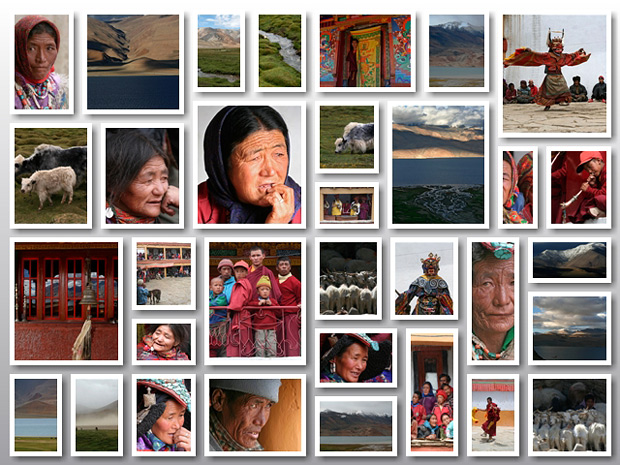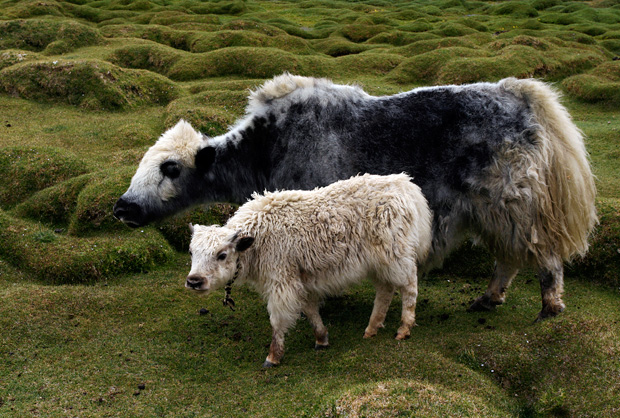One of the days while we were at Tso Moriri, we got caught in a cold storm that numbed our bodies. Warm Yak’s milk helped us recover in no time.
We were transported to a different world at Korzok Fu. Having spent weeks among the bare mountains of Ladakh, standing amidst lush greenery criss-crossed by fast-flowing streams had numbed our minds with excitement and had reduced our ability to think. As we walked merrily, stepping over thick growth of grass that made me feel as if I am walking on a huge cushion, we saw dust raising at the distant slopes that were now darkened by thick clouds. We watched the slopes disappear behind the layer of dust with surprise, occasionally remembering to capture the storm in the camera. Only when the fast moving storm hit us with big, cold,almost freezing droplets of rain did it hit on us that we must have been planning an escape instead of staring at it.
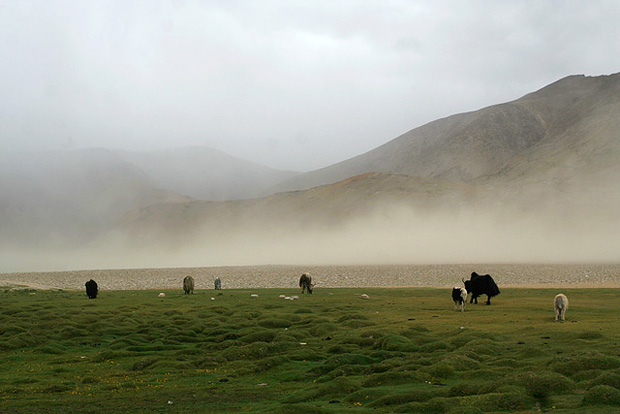
An approaching storm at Korzok Fu
The raindrops hit us very hard and had us scurrying for shelter. In the next minute as we hurried in search of an escape, our faces became numb and I had difficulty even in speaking clearly. We rushed towards the tent-houses of changspa nomads who were camping nearby, struggling to find a way to the nearest one, which required us to wade a stream of ice-cold water.
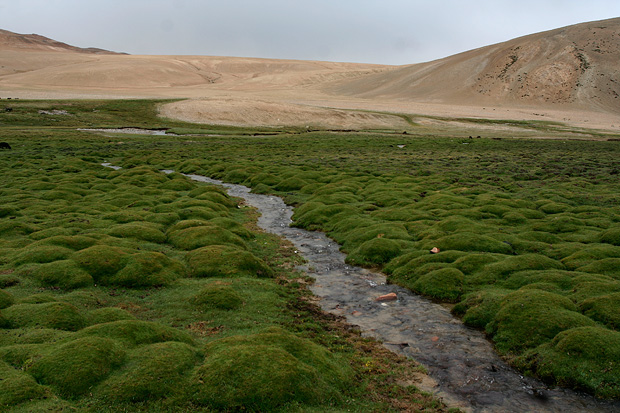
As we approached one of the tents, a shepherd dog made our job more difficult as it shouted hard to keep us from approaching his master’s dwelling. But his barking helped announce our arrival to the people inside and we were quickly invited to come in and take shelter from the rain.
It was one-room house with roof and the walls made from a thick blanket of yak hair. A storage area that doubled up as an altar at the center dominated the tent. A bulky tape-recorder, perhaps more than ten years old from the looks of it, stood mutely next to the altar. A corner to the left of the entrance served as a kitchen, where a cooking-gas stove was installed on a raised platform. Bedding rolls and personal belongings were scattered next to the walls on all sides. Not far from the center sat Tsering, the man of the house, processing yak hair and weaving them into threads. He did not talk much besides asking us to take a seat and continued with his work. A girl, perhaps Tsering’s daughter, warmed some Yak’s milk offered it to us. The thick, warm milk helped me recover from the numbness caused by the cold raindrops and the mild shock of getting caught in the storm.
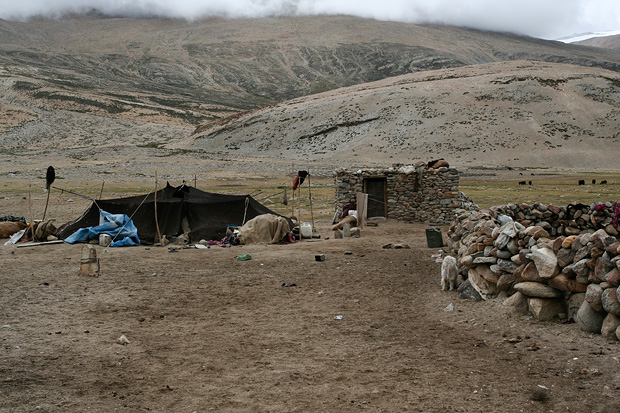
We must have sat there for thirty minutes recuperating and waiting for the storm to abate. The yak-hair tent looked too flimsy to withstand the rain, but not a drop had entered inside. Tsering focused on his work and mostly remained silent after the customary greetings and an exchange of introductions. After a while, he asked if we had been travelling (‘ghumne aaye ho?’ literally translated as ‘have you come to wander?’). When we nodded in affirmation, he wanted to know what we gain from all the travel (more about this conversation here) and seeing places.
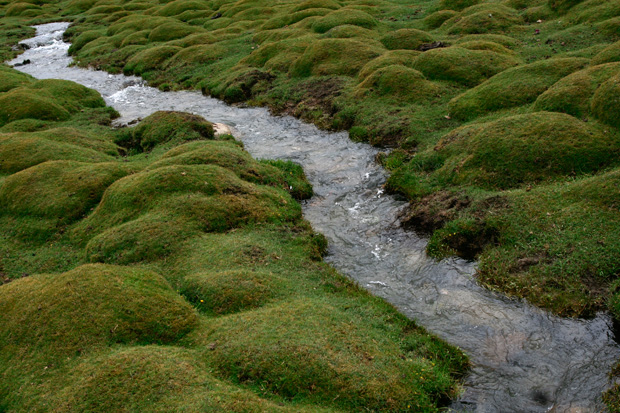
The changspa nomads near Tso Moriri make a living herding their livestock from pasture to pasture, selling pashmina wool and yak butter. They normally have a few fixed pastures where they pitch tents at the same place every year. Their nomadic life once deprived them of many facilities that someone with a permanent address takes for granted. But today, they receive government facilities such as access to cooking gas and rations. Children of many of these nomads now go to residential schools run from donations made by tourists.
We came out after the storm abated, this time wiser and careful to look for anomalies in the landscape. But thankfully sun shone brightly for rest of the day, letting us explore the pasture without worrying. The grass at Korzok Fu is as lush and full of life as it can be. Every inch of the ground is filled with tiny grass that hid the earth surface. Small streams suddenly emerged from this grass, rushed swiftly down the slope and again disappeared somewhere into the earth to reemerge a little further. The ground on Korzok Fu has a layer of soil above a rocky layer that allows waterways to go under the surface at times.
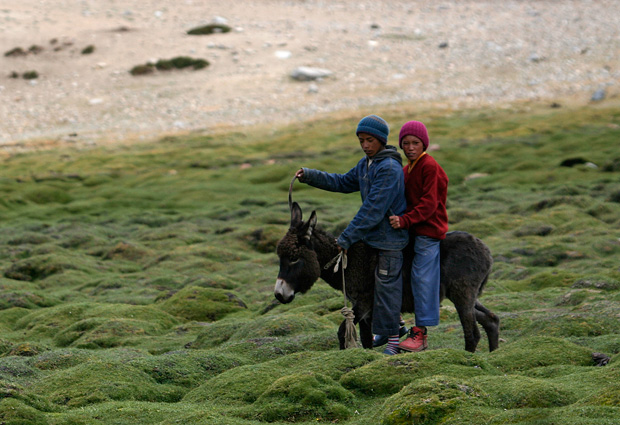
A few tents dotted the landscape that was dominated by a tall chorten (stupa). A changspa man next to us was trying to tame a yak that refused to listen to his commands. Two young brats were riding on a donkey, forcing it to obey their orders with a stick and steering it by pulling the ears. Sometimes the donkey showed its reluctance to move, but succumbed to the persistent act of pulling the ears and unwillingly moved forward.
We only spent half-day exploring Korzok-Fu. It was an eventful six hours at the pasture.
Prints of all the images available. Request for prints.
